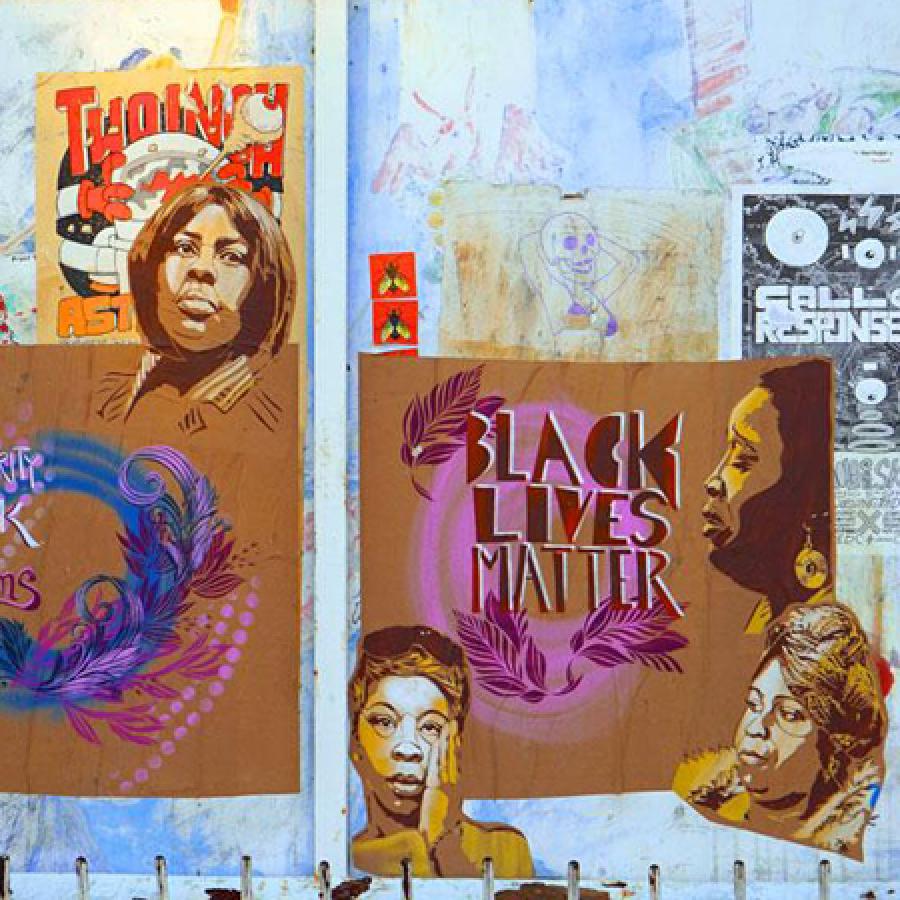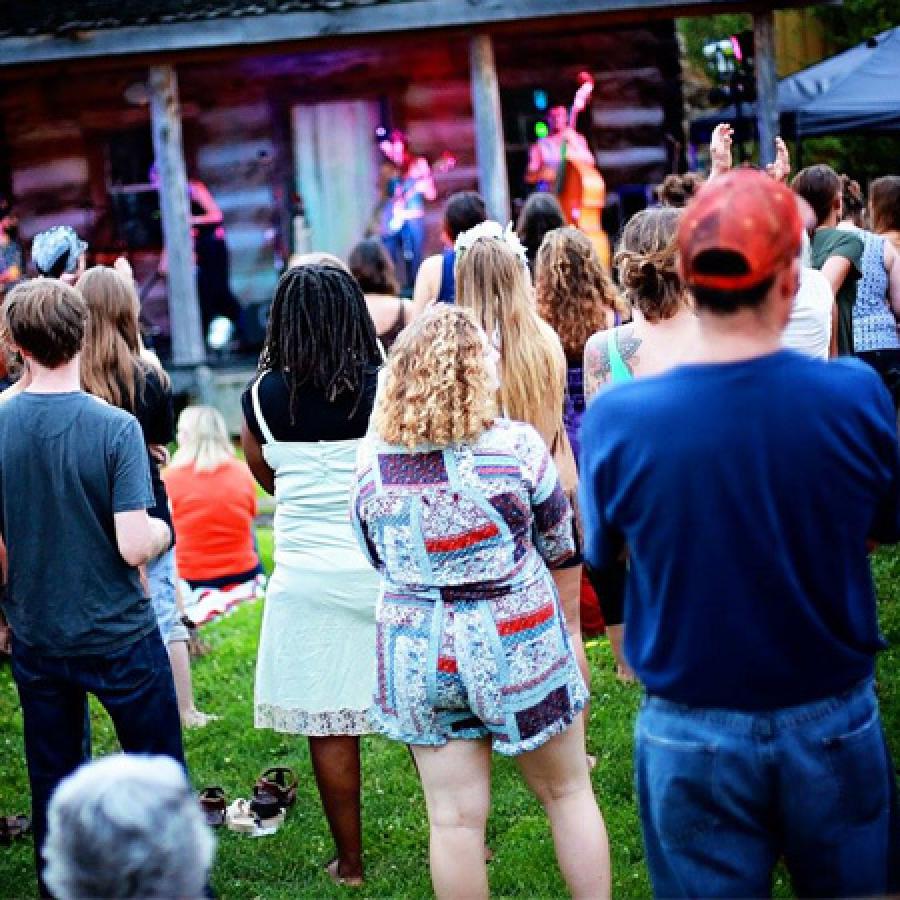"Decolonizing the University”: Race, Research, and Resisting Displacement
The inaugural event of the Institute on Inequality and Democracy at UCLA last year was not your standard ivory-tower affair. “I could have simply invited an economist to come give a lecture, and we’d be done,” said Ananya Roy, the Institute’s founding director. Instead, she invited anti-displacement activists from Chicago, Los Angeles, and Cape Town, South Africa, to talk about race, inequality, and the urban future. “The intellectuals we wanted to learn from were precisely these activists at the front lines of these struggles in cities,’’ she said.
Roy — author, scholar, activist, and a leading voice on urban transformation in the global South — hopes to build the Institute into a platform for an emerging global movement for more equitable cities. She believes displacement is a central issue for that movement because it goes to the heart of so many equity issues, including race, inequality, economic development, and financial security. Roy’s most recent essay is “Divesting from Whiteness: The University in the Age of Trumpism.” She spoke with America’s Tomorrow.
You recently wrote that the widespread use of the term “inequality” bothers you. That’s surprising coming from someone leading a new institute on inequality. What’s your critique?
I’m somewhat cynical about the extent to which inequality is in the headlines. In academic and policy debates there’s a way in which inequality has come to focus on income inequality. That’s partly because economists have led the debates. This has led to a revolution in economic thought, but what remains out of view — and what Black Lives Matter and other movements have brought into view — is that persistent racial inequality cannot be resolved simply as a result of economic restructuring. It cannot be reduced to economic disadvantage. The Institute is explicitly focused on racial inequality as a way of thinking about enduring structures of discrimination and social inequality.
Why is the issue of displacement central to your thinking about inequality?
The question of displacement has become an entry point to think about broader issues. At the Institute, our research has coalesced around three key areas. One is eviction. Second is financialization — financial insecurity and what we call financial disobedience, and the incredible organizing work happening around debt. Third is mass incarceration and decarceration — for example, what housing rights, employment rights, and other rights might look like for returning citizens. A racialized logic runs through all three of these issues.
How does your expertise as a scholar of global poverty globally influence your work on displacement?
My current research has been with the Chicago Anti-Eviction Campaign. They occupy foreclosed homes and block evictions, but also they’re in the process of creating a community land trust. The campaign was influenced in many ways by the Western Cape Anti-Eviction Campaign, one of South Africa’s most important urban social movements. So when we launched the Institute, we focused on activists not only from the United States but also from South Africa. The South African movement really placed us in a global context of displacement and dispossession; it created a different narrative around land but more importantly, I think it made available to activists here a new set of tactics. To see all of this as globally interconnected is very powerful.
How is the Institute addressing displacement challenges in its hometown, Los Angeles?
Eviction is not just a story of landlords evicting tenants who can’t pay their rent. There is a systematic process by which evictions are unfolding and there’s a systematic vulnerability of certain tenants. We don’t have robust databases that tell us the extent of the situation. My colleagues and I are hoping to start with Southern California and build up such a database. We take our cues here from colleagues in Brazil. The top public universities in Rio de Janeiro and Sao Paulo have incredible databases that map and record every eviction, every demolition. The availability of this data has been an extraordinary asset for social movements. It has also made possible a set of important policy shifts and debates around evictions and displacement in those cities. I don’t know if we can pull off anything at that scale but it is quite important for us to consider how the lack of data means that we are not having the sort of policy conversations we need to have about evictions.
How did your experiences as a child in India inform your thinking about inequality in cities?
I grew up in Calcutta, India, and moved to Oakland, California, at the age of 18 to go to school. It took me several years to realize, wow, I’m actually an immigrant. In many ways, that move sparked my interest in cities. The inequality that was so evident in Oakland prompted me to make sense of the city I'd grown up in. And to think about the spatial manifestations of inequality. And to think about the sort of change that can be made.
You’ve engaged Los Angeles activists in shaping the scope and priorities of the Institute. Describe that effort.
I wanted to learn from what they were doing, but most importantly, the question I repeatedly posed to them was, in what ways could this Institute be an ally and be of use to them? They had a very specific response: “Do the research; do the theory.” Now, the relationship between powerful universities and social movements can be fraught. We’ve set out an intention to journey with social movements and to journey with particular forms of activism and organizing. This is part of a broader framework for us. The term we’ve been using is decolonizing the university. It’s sort of turning the university inside out — taking ourselves outside of the bubble and thinking about how those whose voices have often been marginalized in the canons of academic knowledge might have a place.
The Institute on Inequality and Democracy has joined with several other departments, centers, and collectives at UCLA to issue a call for educators, students, and researchers across the country to make January 18 (#J18) a day of action against policies of violence, disenfranchisement, segregation, and isolationism. To learn more or commit to organizing an event, visit teachorganizeresist.net.


